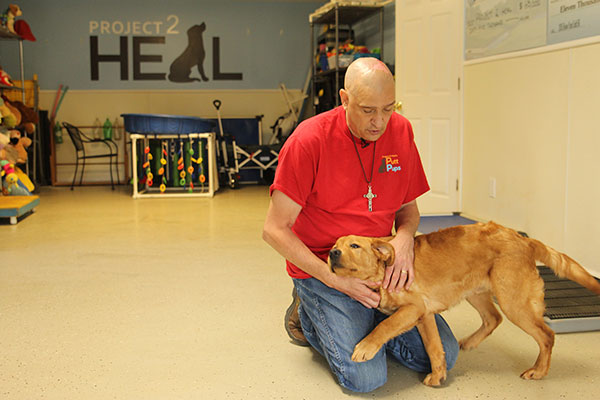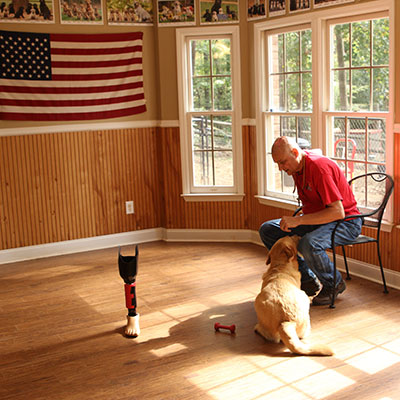CHARLOTTE — The first grant from the Diocese of Charlotte’s unprecedented “Forward in Faith, Hope, and Love” campaign to benefit multicultural ministries is being given out to connect Hispanic families to the Church using the latest digital technology.
The Multicultural Ministries Endowment – one of seven endowments set up thanks to the FFHL campaign – is funding a $17,400 grant for the Hispanic Ministry Office. The money will be used to buy computers and audiovisual recording equipment to assist the Hispanic Ministry team that supports the 10 vicariates, or regions, of the diocese.
The diocese’s Hispanic Ministry staff is one of the most extensive of all dioceses in the United States, with diocesan-supported leadership and staff serving every vicariate and parishes with Hispanic populations. Nearly half of the diocese’s estimated 400,000 Catholics are Spanish-speaking or of Hispanic origin.

Your DSA contributions at work
The diocesan Hispanic Ministry Office is funded in part by contributions to the annual Diocesan Support Appeal. Learn more about the DSA and how you can contribute at www.charlottediocese.org/dsa.
Sister Joan Pearson, who is the Hispanic Ministry coordinator for the Salisbury Vicariate and works closely with Hispanic Ministry’s vicar Father Julio Dominguez, said she is grateful for the opportunity to buy 12 laptops, 12 projectors, 12 microphones with stands, and 12 light sets for video recording purposes.
“It really is a godsend,” Sister Joan said. “I used to have to share the projector with Father Julio and had to go get it when I needed it.” Now she will have a laptop, projector and microphone to use at her location as needed.
“We are so grateful to the good people of our diocese who pledged and contributed to the FFHL campaign, because the funding we have just received from the Multicultural Ministries Endowment is very important to our efforts to accompanying our Hispanic Catholic faithful throughout the diocese – especially during this ongoing pandemic,” Sister Joan explained.
“The continuing COVID-19 crisis has pushed all of us to adapt our ministries following the CDC and diocesan safety guidelines regarding how we minister to the faithful,” she said. “I believe we, the diocesan Hispanic Ministry coordinators team, have been very creative in our efforts, which we began employing as early as late March while still in Phase 1 of the governor’s stay-at-home order.”
Hispanic Ministry team members were able to adapt to the challenges brought on by the pandemic with a fairly rapid and smooth transition from church-centered activities to social media, podcasts, webinars and video conferencing to “keep the faith going” and strengthen Hispanic families during the crisis. The need for outreach was particularly acute because the coronavirus has disproportionately affected Hispanics, many of whom are classified as essential workers or are unable to work from home, and others who lack access to affordable health care.
Sister Joan noted, “The reality of doing this with outdated tech equipment (older than some of our class participants!) quickly revealed some major problems: We needed up-to-date and multiple-platforms-enabled equipment. Some of us needed cameras to attach to old monitors just to Skype.”
“This grant equipment is essential in accomplishing our mission. And the designation of these funds for Hispanic Ministry is a very clear way to communicate support by the diocese to the People of God,” she said.
They hope to begin using the new equipment next month, she said.
“FFHL funds continue to go to the parishes, capital projects and endowments across the diocese,” said Jim Kelley, diocesan director of development. “FFHL has had a significant impact on the work being done in parishes and in ministries across the diocese that provide services to parishioners. This distribution from the Multicultural Ministry Endowment Fund is just one way these distributions will help the Hispanic Ministry staff do a more effective job serving others.”
The FFHL campaign launched in 2013 and has received $53.3 million in pledge payments to date.
Proceeds from the campaign have already been put to work, and all 92 parishes and missions have received funds. Four other main areas of the campaign have received significant funding so far: clergy support, Catholic education, Catholic outreach, and pastoral and temporal needs.
Campaign distributions total $43.1 million to date, including $15.5 million for FFHL’s seven endowments.
— SueAnn Howell, Senior reporter
‘These dogs are saving lives’
 WAXHAW — Thanks to a local Catholic couple and their ministry, dozens of veterans can attest that recovering from post-traumatic stress disorder starts with a puppy.
WAXHAW — Thanks to a local Catholic couple and their ministry, dozens of veterans can attest that recovering from post-traumatic stress disorder starts with a puppy.
Charlie Petrizzo and his wife Sandy breed and train Labrador Retriever puppies for veterans in need through their non-profit organization “Project2Heal.” Their trained service and companion dogs provide crucial emotional support to veterans who are struggling to recover from PTSD.
Petrizzo knows firsthand how canine companions can offer unique comfort to someone who is ill or infirm. He suffered two serious accidents when he was younger, and each time a family dog helped him through his painful recovery. After stepping back from the fast-paced world of finance, he felt called by God in 2005 to start the charitable organization in line with his Catholic faith, using his Waxhaw home and his own resources.
Over the past 15 years the Petrizzos have earned a reputation in the service dog breeding and puppy training world for being top in the field.
Service or companion dogs can be a vital lifeline for veterans, particularly those suffering from depression, uncontrolled anger or suicidal thoughts. A 2018 Purdue University Veterinary Medicine study documented that service dogs helped veterans by considerably reducing PTSD – instances of depression, hypervigilance, night tremors and outbursts of anger – brought on by their military service.
Project2Heal steps into this breach, and Petrizzo has seen the impacts.
“These dogs are saving lives,” he says.
One Marine veteran in his early 30s, who “was a picture of strength and courage,” once quietly approached Petrizzo during one of their training programs, he recalls.
“He gently placed his hand on my shoulder. He leaned in and was crying and whispered through tears, ‘Sir, thank you very much for this dog. I was a trigger pull from taking my life. Now I have him and he will take care of me and be my mission, and I promise you I will take care of him.’
“After he told me that, I turned to Sandy and I said, ‘We’re making a difference.’ That was one of the most moving things that has ever happened to me. This man was a battle-worn veteran. He outwardly looked like the picture of strength. Inwardly, PTSD was crushing him.”
Petrizzo also thinks about another Army veteran who traveled from Tennessee to obtain a companion dog through Project2Heal. The man had reached out to a number of service dog organizations, but money was an obstacle.
“He wrote a beautiful letter to me. I told him he may not need a service dog, he may need a companion dog.”
Petrizzo knew the moment he saw the veteran that he needed his help. “When he came here he was dripping sweat he was so nervous. He was gripping his head. I could see the PTSD. I could actually see the PTSD, the struggles he was having. I told him, ‘If you want a dog that is trained, but not a trained service dog, I will give one to you, a companion dog.’”
It costs thousands of dollars to breed, raise and train puppies to become either service dogs or emotional support dogs. Project2Heal begins training its puppies when they are two days old and continues training for eight to 12 weeks – until they are evaluated and given to a service dog training partner for more specialized training and placement. Dogs that do not pass the strict service dog testing process are instead trained and given to people in need of companion or emotional support dogs.
The need for Petrizzo’s puppies continues to grow, he says.
 “We’re doing work that no other organization does,” he explains. “We focus specifically on reducing the time and cost it takes to get a veteran, or a child with a special needs, a service dog… We have 20 kennels here. That’s really just the first step.
“We’re doing work that no other organization does,” he explains. “We focus specifically on reducing the time and cost it takes to get a veteran, or a child with a special needs, a service dog… We have 20 kennels here. That’s really just the first step.
“The challenge is when you get calls from 30 organizations, to really make a difference… if we could donate 10 puppies each to 15 organizations that would really change the dynamic and the amount of time that our veterans have to wait.”
Petrizzo hopes to expand the Project2Heal ministry using 50 acres that he recently bought nearby their current location. Besides adding to the number of kennels, he would like to build tiny houses for visiting veterans.
“So if veterans are waiting for a dog, from whatever organization, and they just want to come and stay in one of these tiny houses for a week or two weeks and stay and help us train and care for our puppies, maybe that is just what they need to hold them over,” he says.
“I want it to be a pastoral experience,” he continues. “It’s quiet. It’s peaceful. If the veterans come, they can help train the dogs. They can walk the hiking path we hope to build. They can fish.
They can quiet their minds and know that we are here to help.”
Petrizzo believes Project2Heal is God’s ministry. “He put it on our hearts to do this. It’s His ministry we are stewarding for Him...We pray for the things we need. And we pray for our puppies to be successful.”
— SueAnn Howell, Senior reporter
Help Project2Heal
The COVID-19 pandemic has hit Project2Heal hard, as it has most non-profits.
An annual golf fundraiser had to be canceled – a fundraising opportunity loss of about $85,000. A virtual event, the Project2Heal “Pup-A-Thon,” is planned for Dec. 4 to help bridge the funding gap. For details, go online to www.project2heal.org, or contact Charlie Petrizzo at 704-256-4056 or This email address is being protected from spambots. You need JavaScript enabled to view it..

